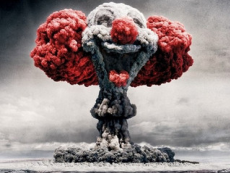
At the close of the Second World War, the US and USSR were no longer united by their common enemy of Nazi Germany and their relations began to deteriorate into the paranoia and misconceptions that became the Cold War. In considering the origins of this Eastern and Western split there are multiple important factors that must be appreciated and ultimately it was an accumulation of these factors and building tensions that caused this deterioration in negotiations. This paper will outline and assess three incredibly important factors in considering the origins of the Cold War, in order to finally conclude whether any particular factor can be blamed above all others for the decades of paranoia, espionage and bloodshed that came to be known as the Cold War. Primarily, this paper will, briefly considering available source material, cover the importance of perceptions in the origins of the Cold War which involves the use of propaganda and how ideology influenced the opposing superpowers in their perceptions of their rival’s actions. Secondly, we must consider to what extent the role of leaders of state and their actions played in increasing tensions, for it is a select few individuals that ultimately control a nation, and finally it is imperative that we do not forget the power blocs argument. With the defeat of Hitler’s Germany a power vacuum emerged in Europe and the Eastern and Western superpowers could not afford to allow the other the upper hand, which leads to an argument of colonialism, indeed US President Franklin D. Roosevelt stated during the Second World War that ‘we are going to win the war, and we are going to win the peace that follows.’ Ultimately, all factors are important and the difficulty of the debate is portrayed by the fact that scholars still cannot agree on an overall conclusion.
Firstly let’s briefly consider the sources available. The main issue for historians considering the origins of the Cold War is that, although the majority of documents from Washington post WWII have been released in archives, the Kremlin has yet to declassify any documents. This makes it incredibly difficult to make an educated conclusion on the origins of the Cold War with such US centric sources. When considering the USSR’s point of view therefore we are unfortunately reduced to educated guesses, but it is possible, many scholars argue, to make such educated guesses based on the way in which the USSR reacted to various international issues; not that we have a choice. Overall, even with the declassification of many US government documents there are still a limited number of primary sources available with little to no contemporary scholarly writings, perhaps because of the mass paranoia and elements of censorship inherent in both Stalin’s USSR and the US under Senator Joseph McCarthy in the 1950s. There are fortunately a plethora of secondary sources and particular praise must be given to John Lewis Gaddis and Richard Crockatt for their outstanding contributions to the field.

0 Comment:
Be the first one to comment on this article.